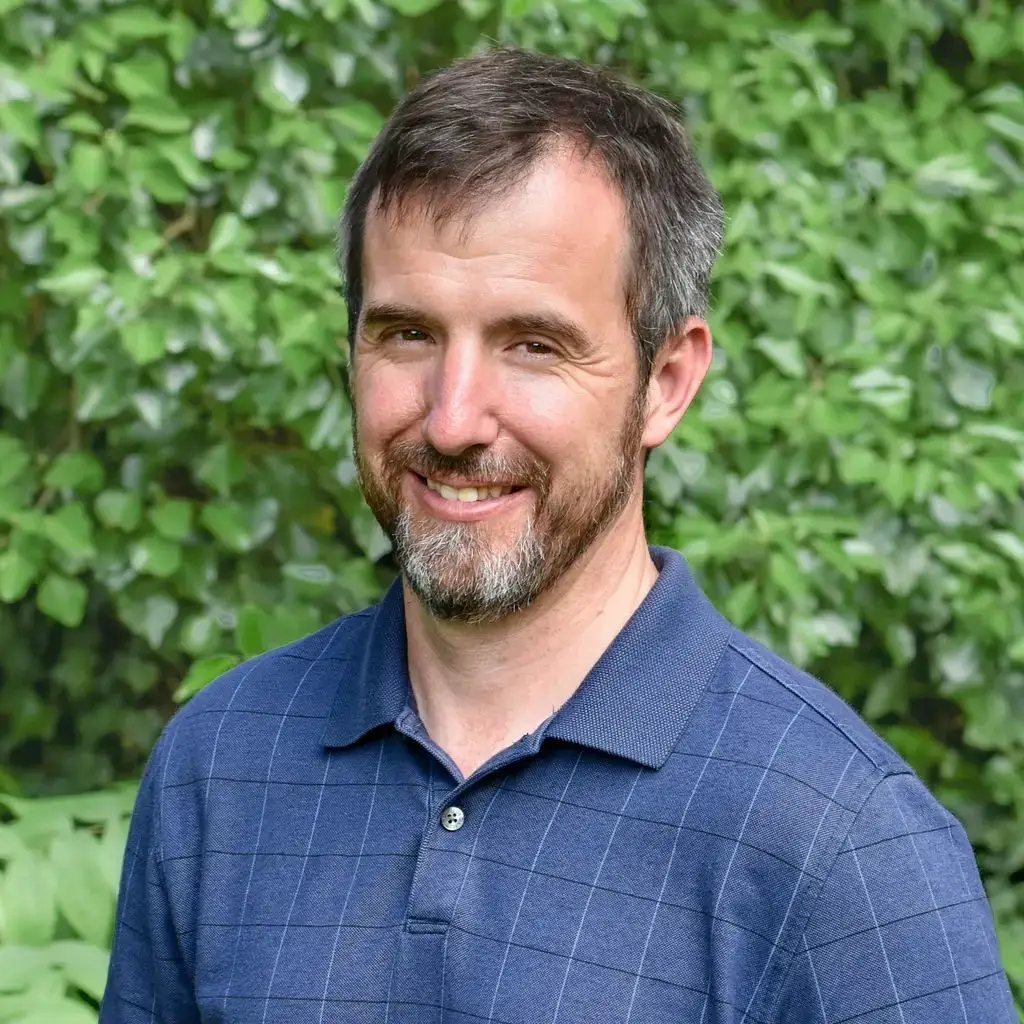Working with the 1% (Part 2): Rescuing Potential and Rebuilding Hope
In my last article, I talked about a university professor who shared a sobering view of what he sees in today’s college students—apathy, detachment, lack of basic responsibility, and an inability to engage with hard things. What startled me wasn’t just the list of challenges he described—it was that 99% of other educators who responded agreed.
Let that sink in: 99% of professors, teachers, and academic professionals who read that article agreed with his assessment. That’s not an isolated opinion. That’s a cultural reality.
But here’s what I said last time, and I’ll say it again:
I work with the 1%.
That’s not arrogance. That’s gratitude. That’s awe. Because day in and day out, I work with young adults who are motivated, engaged, thoughtful, curious, humble, hardworking, and unusually responsible. The kind of young people who take notes because they want to. Who ask thoughtful questions. Who follow through. Who finish what they start.
But after reading that professor’s article, and after reflecting on it more deeply, I realized something else:
The future of education in your inbox.
Get productivity tips, commentary, and Unbound updates sent to you!
This isn’t just a story of contrast anymore.
It’s a rescue mission.
We Are Watching Students Fly Off a Cliff
When I read through that professor’s experiences, I don’t just feel surprised or dismayed—I feel heartbroken. And I feel a sense of urgency I’ve never quite felt before.
Because what he describes—this slow-motion collapse of engagement, effort, and hope in young adults—isn’t just bad. It’s not just frustrating.
It’s tragic.
These students he’s describing? They’re not “bad kids.” They’re not lazy by nature. They are children of God, made in His image, born with dignity and purpose and infinite potential.
And they are being chewed up and spit out by a culture that leaves them unprepared to do hard things, unequipped to live resiliently, and unsure if they even matter.
They are walking into college and adult life thinking that in order to change the world, they must be rich, famous, brilliant, or powerful. And when they realize that they aren’t any of those things—and may never be—they fall into despair. They disengage. They give up.
And so we are watching our young adults—God’s children with untold potential—fly off a cliff.
I’m not okay with that. I refuse to be.
This is why I’m writing so forcefully, why I’m presenting this idea with such urgency. Because it’s not enough to say, “Hey, we’ve got a cool program, and we’re really enjoying what we’re building over here.”
Now? It feels like a rescue mission.
What We Mean When We Say “Thrive”
If you’ve heard me speak or watched any of our webinars, you’ve probably heard me use the word thrive. You may have even heard our tagline: “Unbound trains young adults to thrive.”
We don’t use that word casually. It’s not just a feel-good synonym for “success.” It’s something deeper.
Here’s what we mean by thrive:
- We teach students to accept full responsibility for their lives.
That means showing up to work, showing up to class, calling your boss if you’re sick, following through on your commitments. No one else is going to do it for you. You have to own your life. - We prioritize relationships.
Not just any relationships. First, our relationship with God. Our Creator. Our Savior. The One who gives all meaning. Then, our relationships with others made in His image—family, friends, mentors, neighbors, teammates. Life is not about accumulating stuff or power. It’s about people. - We redefine world-changing.
You don’t have to become a celebrity or a billionaire to make a difference. You change the world by being extraordinary at ordinary things. That means showing up. Loving people. Serving your community. Doing what you say you’ll do. - We teach students to create value.
We’re not here to train people to make money for the sake of making money. We train students to create value—because value creation is what drives wealth, builds families, supports communities, and creates opportunity. - We teach resilience.
This is a broken, busted world. Life is hard. Things go wrong. No one escapes without scars. But we live in hope—not naive optimism, but the deep, unshakable hope of eternity. Because we don’t live for ourselves. We live for the glory of God.
That’s what we mean when we say thrive.
Students Are Starving for Tools—and Surrounded by Noise
What makes this even harder is that so many young adults are starting without even the most basic tools to succeed.
- They’ve never learned how to think critically.
- They’ve never had to solve a real problem.
- They’ve never experienced accountability or had a mentor.
- They’re surrounded by peers who are just as overwhelmed, just as confused, just as lost.
- And they don’t even know where to start.
Let me ask you something: What happens to someone who’s completely unequipped, surrounded by people in the same state, and trying to figure out what it means to grow up?
It’s not good.
Groupthink sets in. Despair creeps in. And eventually, students just check out—mentally, emotionally, spiritually.
But there’s another way.
Introducing Ascend: An Intentional Path for the 1%
So now let me talk about Ascend—Unbound’s flagship program for post-high school students. Because everything I’ve said up until this point leads here.
Ascend is not a program for “broken” students or the 99% described in that article.
It’s a program built for the 1%.
That’s a big deal. Because it means we start with a group of students who read, who write, who think, who ask hard questions, who show up, who value excellence, who prioritize relationships, who care deeply about their walk with Christ.
So our job isn’t to babysit them. It’s to challenge them.
We get to build something remarkable for these students. We get to push them. Inspire them. Support them. Equip them. And then stand back and watch them change the world—not through fame, fortune, or viral videos, but through everyday excellence rooted in Christ-centered purpose.
How Ascend Works
Let me walk you through how the Ascend program works, because I think you’ll start to see why it’s so different—and why it works so well for the kind of students we’re talking about.
1. Hybrid Education
Ascend is a hybrid program by design. Yes, we deliver online courses. But we don’t believe real community can be built online alone.
That’s why Ascend students travel to four live events throughout the year—multi-day, high-energy, in-person gatherings where relationships are built, life gets real, and growth accelerates. These events are intentional. They’re immersive. They’re unforgettable.
And if you’re wondering whether this works for introverts or students who don’t know anyone—ask the girl who got off the bus at our APEX event crying, not knowing a soul, wondering what she had signed up for.
When I asked her how long that uncertainty lasted, she smiled and said: “Till lunch the next day.”
She got off the bus in tears. And cried again when she had to leave—because she didn’t want to.
2. Embedded in Real Life
Ascend is also built to let students stay rooted in their local communities.
We don’t pull them away from their families, their churches, or their jobs. We want them embedded in those places. We want them to deepen their roots while expanding their reach.
This is the opposite of the “send your kid away and hope for the best” model. We’re building a national network of young adults who are connected, growing, and thriving—while still plugged into real life.
3. A National Network for Life
One of the most remarkable things about Ascend is its community. And when I say community, I don’t mean something you experience only while enrolled. I mean lifelong community.
For example, two young women who met at Ascend live in different states but have become fast friends, regularly pushing each other to grow and sharing life’s ups and downs. They visit each other’s homes, support each other through challenges, and have developed a relationship that spans state lines and years.
This kind of connection isn’t an anomaly. It’s the rule.
Here’s a story to illustrate: A photo taken at our 2021 national conference shows a group of student leaders—young men and women deeply connected through shared experience. In a recent photo of the same group, one young man and woman who met in the program married, and now they have a daughter. They, along with their friends, continue to serve on leadership teams, help with events, and gather regularly despite living across the country—California to the East Coast and beyond.
This multi-faceted, deeply rooted community is the hallmark of Ascend. When we ask students what the best part of the program is, 99 times out of 100, they say it’s the friendships—the network of peers and mentors who continue to pray for, encourage, and walk alongside them.
Imagine what that means for a young adult who might be surrounded locally by the 99%, but is connected nationally to the 1%—a community constantly sharing skills, talents, opportunities, and support.
Selective by Design
Ascend is not for everyone.
We get that. Every student and family is different. We believe in the uniqueness of every young adult and respect that there’s no one-size-fits-all path.
That’s why when families reach out to us, we don’t just sign them up right away. Our admissions counselors ask thoughtful questions to understand the fit. If it’s clear Ascend isn’t the right place to help a student thrive, we tell them upfront—and help guide them to a better fit.
We’re not interested in enrollment numbers. We’re interested in impact.
This isn’t about modesty or marketing. It’s about integrity. It’s about ensuring every student who joins Ascend is set up for success.
Why This Matters Now More Than Ever
So let me bring this home.
I didn’t build Ascend because I thought college was bad. I built Ascend because I believe we can do better. And because the stakes are too high not to.
I see a generation of young adults teetering on the edge of hopelessness, confusion, and detachment. And I see what’s possible when they’re connected to a community of excellence, responsibility, and faith.
I see students who are ready to thrive.
If you’re interested in learning more about how Ascend works, or whether it might be the right fit for your young adult, reach out. Our team is happy to walk you through the details and answer any questions.
Because this isn’t just a program. It’s a movement to reclaim potential, restore hope, and build a generation who will thrive in a world desperate for people who are grounded, capable, and full of purpose.

Jonathan Brush is the President and CEO of Unbound, a homeschool graduate, and a homeschool dad of six. He worked for nine years as a Director of Admissions for a private, liberal arts college, and then spent over ten years working in non-traditional higher education.
Jonathan loves Unbound and Unbound students and dreams every single day about new ways to connect them to each other. He gets to work with the world’s best team and the most amazing student body in the history of the world (which is just as awesome as it sounds), and field questions about Rule 4 violations (ask an Unbound student to explain). Jonathan and his family make their home in the Shenandoah Valley of Virginia.



